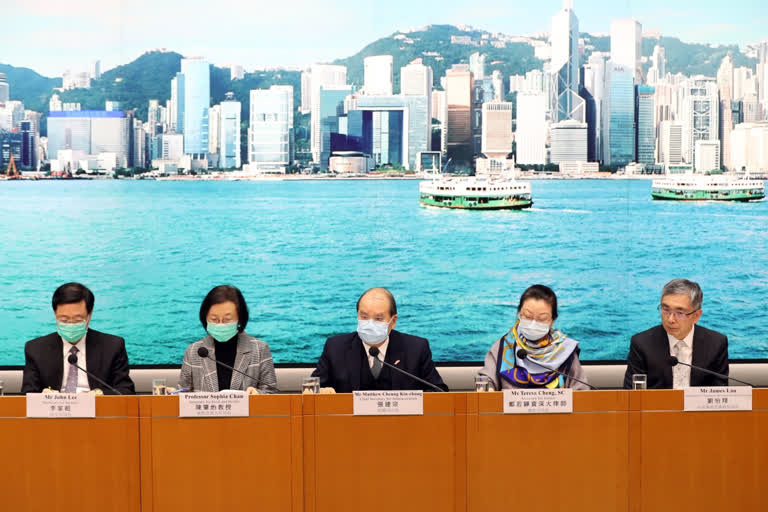Hong Kong: The Hong Kong government has said it would not be intimidated by US President Donald Trumps threats to strip the territory of its special economic status following Chinas bid to roll out a new national security law for the city.
Hong Kong's Security Secretary John Lee told the media on Saturday that "the US won't win" by using threats against the regional government, adding authorities were doing the correct thing by supporting the new security law drawn up by Beijing, according to the media report.
Justice Secretary Teresa Cheng said Washington would violate international law if the US president followed through with his threat to sanction individuals deemed to be aiding the stripping back of Hong Kong's autonomy.
"The US passed their national security laws; so can China. And therefore it is within the sovereign right of each state to pass relevant national security laws," Chen said, according to Hong Kong public media outlet.
Finance secretary Paul Chan said Hong Kong was drawing up a contingency plan in case the US withdrew the region's special economic status.
On Friday, Trump lambasted the security law that Beijing is planning to apply to the territory.
Read more: Pro-HKong students protest China security law
Critics of the national security law say it would effectively curtail any remaining autonomy in the former British colony.
Hong Kong was handed over to Chinese sovereignty in 1997 but its residents retain a considerable level of autonomy from the mainland under the so-called one country, two systems framework.
The new security law would proscribe acts of "subversion" against the Chinese government.
It comes after a year of pro-democracy protests in the financial hub, which first emerged as a response to efforts by local authorities to introduce an extradition law that opponents said would allow China to target dissidents and free speech activists.
Despite weather alerts for an approaching storm, pro-Beijing protesters gathered in front of the US consulate in Hong Kong on Saturday calling for an end to what they see as Washington's political meddling in the territory.
Pro-democracy protesters, meanwhile, were studying their strategy and urged the international community to back the US' stance on the matter.
Joshua Wong, a prominent pro-democracy activist, called on the international community to ally against the new security law, saying: "actions speak louder than words".
The controversial new security law, passed by lawmakers at China's annual congress last week, would also aim for any "foreign interference" in Hong Kong.
Also read: HK arrests protesters ahead of controversial law discussion
(With inputs from IANS)



